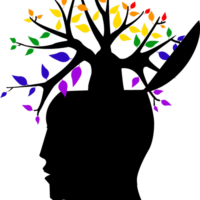
What is moral understanding ?
2910 Édouard-Montpetit
Montréal
Dans le cadre de ses midis de l’éthique, le CRÉ accueille Maude Ouellette-Dubé, de l’Université de Fribourg, en séjour au centre. Maude offrira une présentation intitulée : « What is moral understanding ? »
Résumé
Moral epistemology, similar to epistemology in general, is characterized by a search for knowledge and questions such as “does moral knowledge exist and, if yes, how can we gain some?”, “what is good and how can we know?” or again “what is a morally right action?” are central to it. In trying to answer these questions the moral inquiry centers on how and whether we can gain moral knowledge, that is, how we can come to have a justified true moral belief. While it is uncontroversial that moral epistemology echoes a search for moral knowledge, some have questioned whether this needs to be so. Over and above moral knowledge, some defend the view that the primary goal of the moral inquiry should be to gain moral understanding (Hills 2009, 2011). There are many reasons to favor the pursuit of moral understanding over that of moral knowledge. For instance, moral understanding is considered central in an account of morally worthy action. Again when an agent has moral understanding she is more reliable because she has a systematic grasp of the subject at hand and, presumably, an ability to reliably make good judgements about new cases. The account of moral understanding favored in the literature is explanatory understanding or “understanding why”. In this case, the agent is said to understand when she grasps the reasons “why P”. In the case of moral understanding “P” has moral content: “understanding why lying is wrong”, “understanding why an action is right”. I argue that to reduce moral understanding to explanatory understanding is not satisfactory because it does not fully capture what it is to morally understand. I suggest that an account of moral understanding as explanatory understanding makes us fail to recognize another kind of understanding which I will call “experiential understanding” and which seems necessary to a full account of moral understanding. In presenting my account of experiential understanding I hope to motivate the idea that a full account of moral understanding is a type of “understanding how”, namely, understanding how to live well.



